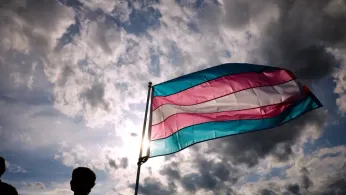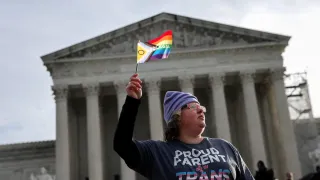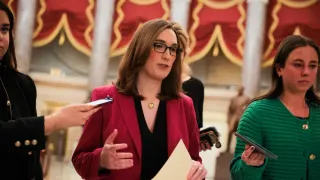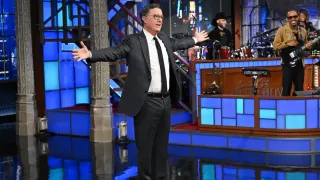
Jul 22
US Olympic & Paralympic Committee Bars Transgender Women from Women’s Events, Citing Trump Executive Order
READ TIME: 3 MIN.
The U.S. Olympic & Paralympic Committee (USOPC) has implemented a new policy that bars transgender women from competing in women's categories at the Olympic and Paralympic Games, as well as in other athletic events under its jurisdiction. The decision comes in direct response to President Donald Trump’s February executive order, titled “Keeping Men Out of Women’s Sports” (Executive Order 14201), which mandates federal enforcement of single-sex participation in women’s sports and facilities across the United States .
USOPC President Gene Sykes and CEO Sarah Hirshland, in a memo to the Team USA community, stated, “As a federally chartered organization, we have an obligation to comply with federal expectations.” The committee’s updated athlete safety policy, published on its website, emphasizes the importance of “ensuring fair and safe competition environments” but does not mention transgender athletes by name .
The USOPC is responsible for overseeing U.S. participation in the Olympic and Paralympic Games and for governing sporting events at multiple levels, from youth leagues to masters competitions .
President Trump’s executive order, issued in February during his second term, asserts that federal funding will be rescinded from educational and athletic programs “that deprive women and girls of fair athletic opportunities,” and instructs state attorneys general to enforce these mandates .
The USOPC’s revised policy, echoing the language of Executive Order 14201 and the Ted Stevens Olympic & Amateur Sports Act, states: “The USOPC will continue to collaborate with various stakeholders with oversight responsibilities, e.g., IOC, IPC, NGBs, to ensure that women have a fair and safe competition environment consistent with Executive Order 14201” .
The policy update was quietly released on Monday, accompanied by a 27-page document outlining the committee’s compliance approach and ongoing discussions with federal officials .
The policy change has drawn immediate attention and concern from LGBTQ+ athletes and advocacy organizations. Many have voiced fears that the decision could set a precedent for other sports federations and further marginalize transgender people in sports .
While the USOPC did not reference transgender women explicitly in its updated language, the effects are clear: transgender women will no longer be eligible to compete on U.S. women’s teams at the Olympics, Paralympics, or related events .
Advocates argue that the policy not only excludes transgender athletes from elite competition but also sends a chilling message to young transgender people who aspire to participate in sport at any level. Legal experts and LGBTQ+ rights organizations are currently reviewing the policy and its alignment with other federal laws and international sporting regulations.
The USOPC’s alignment with the federal executive order places the United States in a unique position among countries competing in international sporting events. While the International Olympic Committee (IOC) and International Paralympic Committee (IPC) have previously issued guidance allowing for the inclusion of transgender athletes under certain conditions, the USOPC’s blanket policy is one of the most restrictive among major Olympic committees .
The New York Times reported that the USOPC held “a series of respectful and constructive conversations with federal officials” in developing its compliance plan . However, advocates have highlighted the lack of direct consultation with transgender athletes and LGBTQ+ stakeholders in the process.
As the policy takes effect, its practical impact will be closely monitored ahead of the next Olympic cycle. Legal challenges and advocacy efforts are expected, as the LGBTQ+ community and its allies seek to protect the rights and dignity of transgender athletes in the face of increasing regulatory restrictions.






